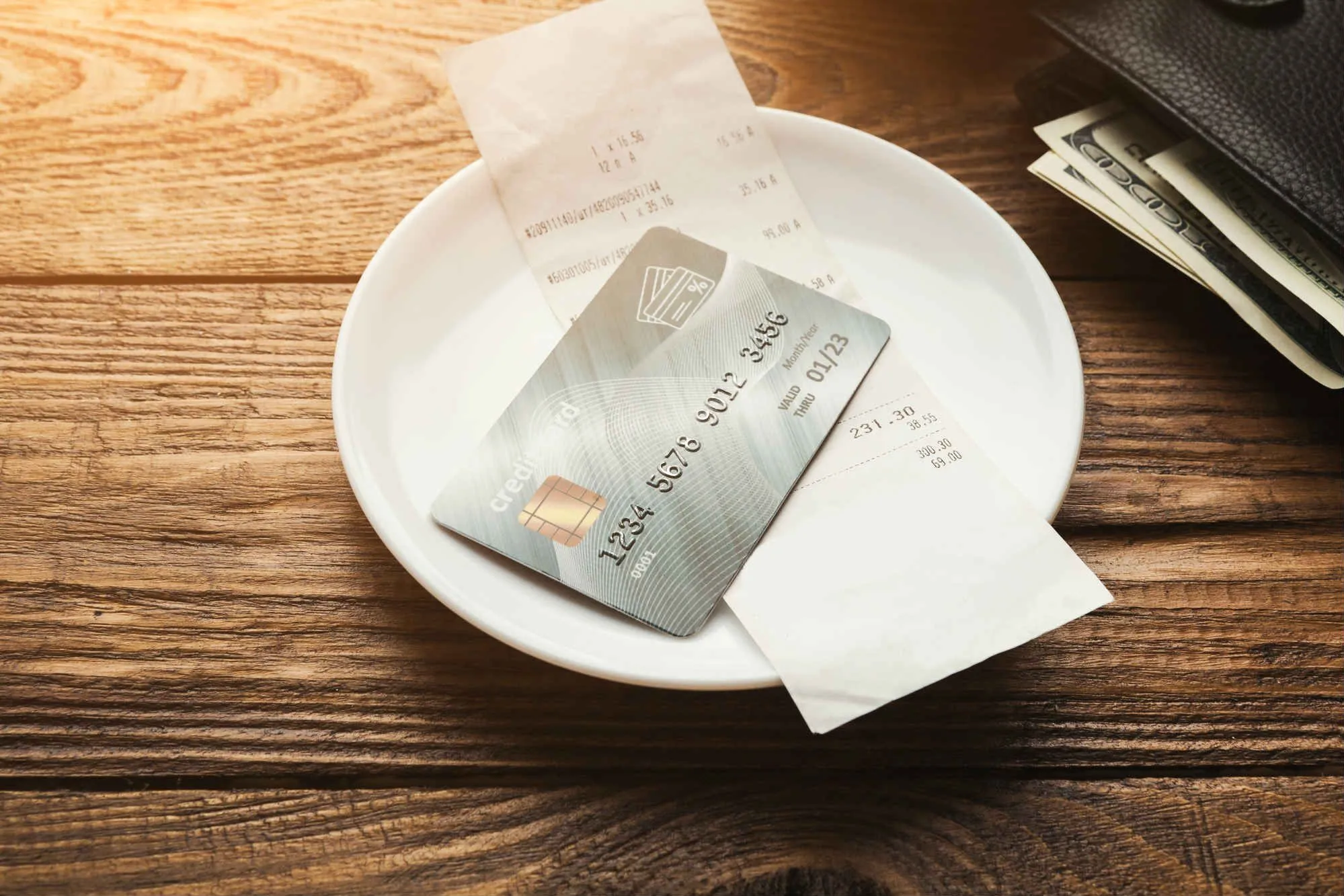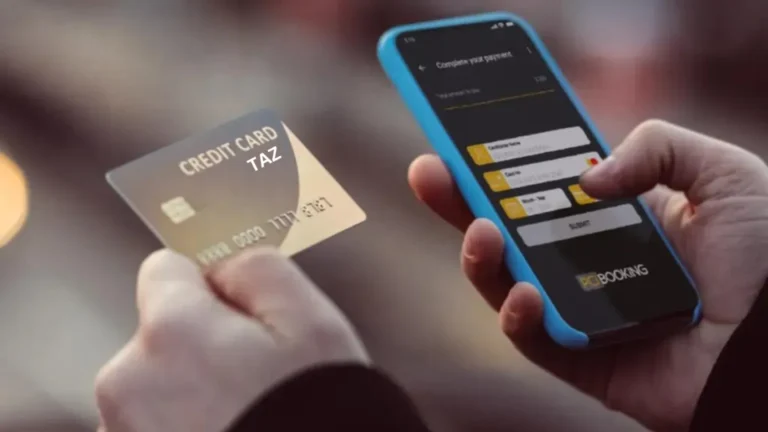Credit Card Receipt: Details, Features and Shortcomings
How do you validate your financial transactions without a credit card receipt? Receipts are a vital element of any credit card transaction and represent a receipt for the transaction. Here is all you need to know.
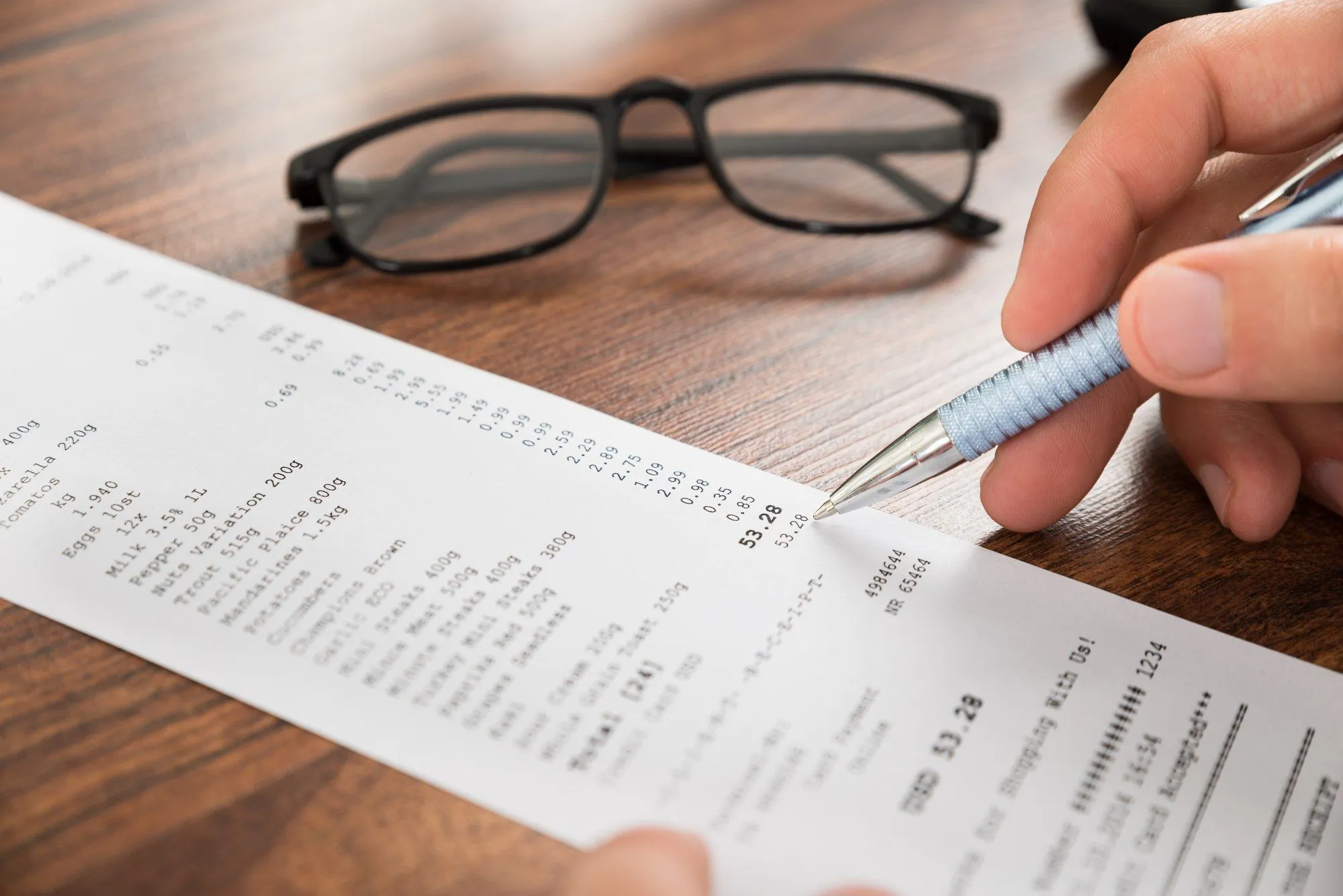
These receipts have a lot of importance in the day-to-day activities of an individual, especially in scenarios of handling personal finances, since they provide comprehensive data on the various transactions being made.
A credit card receipt is a copy of the sales slip that is produced at the time of sale when the customer pays by credit card.
This message has important information about the transaction, such as the date, time, amount of the transaction, merchant name, and the last four digits of the credit card number.
In terms of payment, merchants retail it through paper receipts or through a notification received through a customer’s email or his mobile phone.
Credit Card Receipt Features
To improve the credibility of transactions and for reference purposes, here are some of the features of a credit card receipt
1. Transaction Details
Credit card receipts contain details of the transaction, such as the amount charged, date, and time, as well as details of the merchant.
2. Itemized List
Most receipts present a detailed list of the items that were purchased, including the quantity and price of the items, making it easier to monitor expenditures.
3. Payment Method
They state the method of payment, where they inform the client with the last four digits of the card which was used for payment, with intention of keeping the clients informed and knowing that they have been charged correctly.
4. Authorization Code
If a store’s receipts include an authorization code, this indicates that the credit card was authorized by the issuer to go through.
5. Tax Information
The taxes that apply to the purchase are stated in the receipt to enable a user to report the accurate amount on his or her accounted books financially and budget.
6. Signature Line
In some cases, a signature line is provided, where the card holder’s signature is needed to finalize the particular transaction.
7. Merchant Contact Information
This way, the receipts of the merchants contain contact details and it becomes easy to return the products or seek clarification on the service provided.
Benefits of Credit Card Receipts
The reasons you should always get a credit card receipts after payment are fir the following benefits:
1. Expense Tracking
It is with the help of receipts that people or companies can keep track of their expenses and, therefore, properly manage incomes and expenses.
2. Proof of Purchase
They serve as receipts of purchase, which play a crucial role in case of return, exchange or warrant.”
3. Fraud Detection
It enables people to scrutinize their receipts in a routine manner to find out instances of illegitimate spending and, thus, create awareness when fraudsters might act.
4. Tax Deductions
With regard to business expenses, receipt is required in order to be able to claim for tax deductions and avoid violating tax laws.
5. Dispute Resolution
Specifically in matters of billing, whether you are charged the wrong amount or in a disagreement with the merchants, receipts offer the relevant evidence.
6. Budget Management
Most of the expenditures are captured in detail when using itemized receipts, thus assisting in conditioning one’s expenditure and future budget.
READ ALSO:
- Credit Card Generator with Money: How it Works, Legal and Ethical Implications
-
JCPenney Credit Card: Platinum Status, Exclusive Coupons and Discounts
-
Victoria’s Secret Credit Card: Free Shipping and Tiered Benefits
-
Home Depot Credit Card: Discounts, Return Period and Annual Fee
Shortcomings of Credit Card Receipts
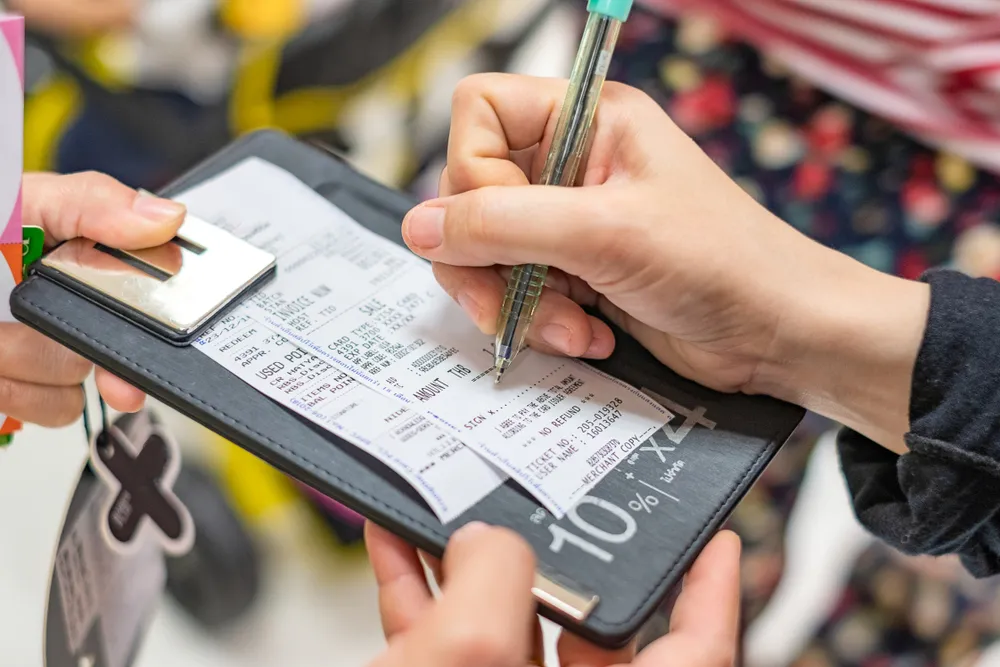
One might ask whether credit card receipts come with any forms of risks or disadvantages to both the business and the consumer. Actually, there are, and they include:
1. Storage and Organization
They also cited problems with managing and storing physical receipts, the unnecessary clutter most times making it very hard to find a given receipt in the pile.
2. Environmental Impact
Receipts that are printed are also among the sources of paperwork, thus harming the environment.
3. Fading Over Time
Letters that are printed on paper can be crumpled and over time the ink fades, making receipts very hard to read and sometimes cannot be used to provide a refund or for record keeping purposes.
4. Data Privacy
Receipts are considered to contain sensitive information and, if not disposed off correctly, then result in data breach or identity theft.
5. Manual Entry
Receiving management by using receipts can be tiresome because they need to be recorded and sorted manually.
Alternative Tools for Transaction Tracking
For you to improve on the tracking activity of purchases, here are some tools to try out:
1. Digital Receipts
In the current era, most merchants give receipts digitally through email or even text message thus eliminating the use of paper.
2. Expense Tracking Apps
Some of the electronic ATT systems include Mint, Expensify, and YNAB, wherein the user can enter the expenses directly from the online banking sites.
3. Online Banking
Almost all card issuing banks have transaction statements available online, thus do not require physical receipts from the consumer.
4. Personal Finance Software
There are many applications, such as Quicken or QuickBooks, out in the market which have extensive features dedicated to the tracking and storage of expenses including the receipts.
5. Mobile Wallets
Mobile payment systems such as Apple Pay, Google Wallet or Samsung Pay automatically create records of the users’ spending available in the users’ smart devices.
Who Gains from Credit Card Receipts?
Here are a few group of people who enjoy or should always keep a credit card receipt.
1. Business Owners
The receipts are critical in documenting business expenditure, monitoring budgets, and supporting tax exemption.
2. Frequent Shoppers
Consumers can also use receipts, especially if they transact frequently, as a way of identifying irregular expenditures within the blurs.
3. Travelers
Expense receipts are very important for the documentation of travel expenditures, especially for business travelers who are required to make claims.
4. Budget-Conscious Individuals
Any person who wants to be in a position to balance their incomes and expenditures may, in the long run can be in a position to benefit from detailed spending records.
5. Tax Filers
Those who take deductions or are involved in management of expenses going to be taxed require receipts so that they can avoid violating the set laws.
Additional Details About Credit Card Receipts
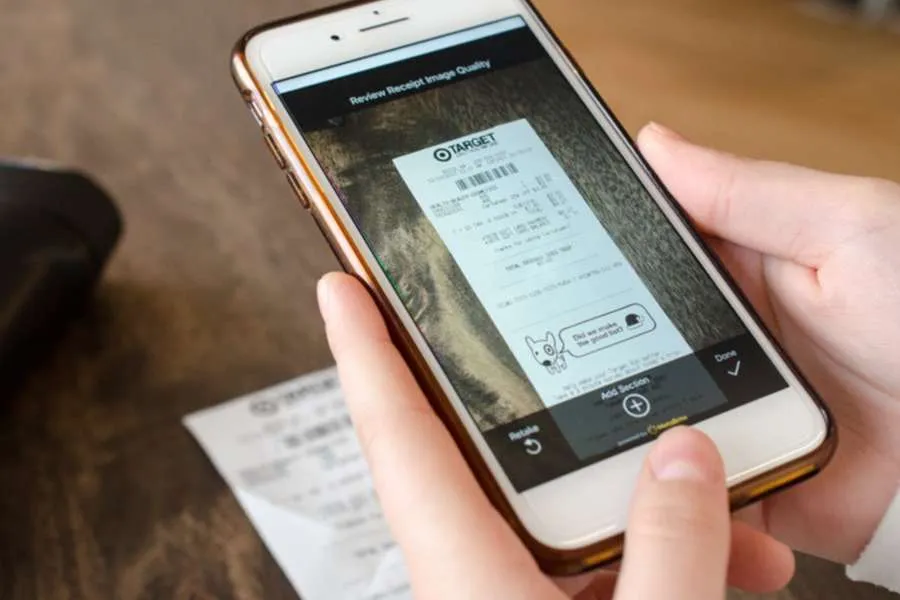
Its good that you have some knowledge about a few things about the credit card receipt, but a deeper insight could save you a whole lot. These details include:
1. Receipt Scanning
Mobile applications as well as personal finance software contain a scanner that helps save receipts in electronic form.
2. Paperless Options
Most people currently prefer taking digital receipts because they prevent the accumulation of numerous papers that are needed to complete receipts; besides, it is easy to arrange the papers.
3. Regular Review
Such steps as going through the receipts from time to time assist one in detect fraudulent transactions and have better control of his or her money.
4. Secure Storage
Make sure that receipts, particularly the electronic ones, are properly archived to avoid compromising the security of the data.
READ ALSO:
- Lowe’s Credit Card: Percentage Earnings, Features and Benefits
-
Banana Republic Credit Card: Interest Rates and How to Apply
-
Aspire Credit Card: Why is it the Best Credit Score Rebuilder?
Our Thoughts
Credit card receipts play a crucial role in transactions due to the information they contain and the help they offer when it comes to expenses, purchase documentation, and fraud prevention.
However, there are also some issues with such tools as storage and environmental effects; nevertheless, many innovations like digital receipts and apps for tracking expenses are incredibly helpful.
Mastering the credit card receipts can help people plan and track their expenditure by producing the rightful receipts as evidence which also helps to minimize the risks of fraud.
Leave your thoughts about this post in the comments section, and don’t forget to share it with the people you care about if you find it valuable.
FAQs
Q1: How long should I keep my credit card receipts?
- To cover such periods, it is recommended to keep receipts for at least 30 days for personal shopping until the period of returns is over. All should be kept for at least 7 years if they’re to be used as tax receipts or business expenditures.
Q2: What should I do if I have lost a receipt?
- In case you lose the receipt, you should always refer to the banking statement or the credit card statement. Some businesses also have the provision of reprinting receipts if one gives details of the transaction that took place.
Q3: Are Digital Receipts admissible in law in event of Return?
- Yes, digital receipts are also accepted for return, as they have all the information as the printed receipts.
Q4 : How do I prevent receipts from piling up and filling up my clean desk ?
- Always, if possible, get digital receipts or receipts that are already compatible with receipt scanning applications; file them digitally.
Q5: Can Credit Card Receipts Be Recycled?
- Indeed, most of the receipts given at the time of payments through credit cards are recyclable, but before that, they should be shredded.

